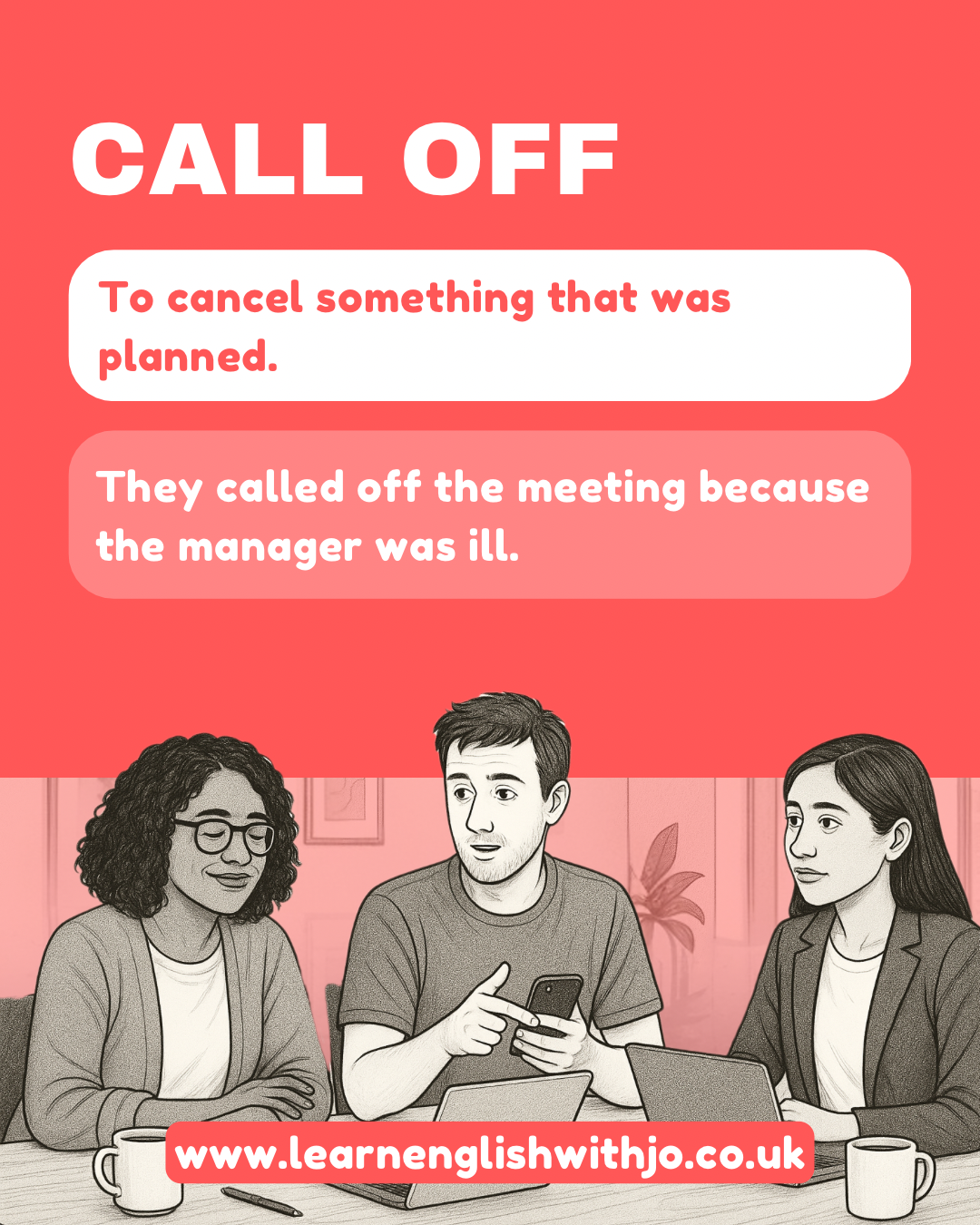English Phrasal Verbs With Call
We all know the verb call: to phone someone, to shout their name across the street, to name something. But like many small English words, it takes on a completely new life when we start combining it with little prepositions such as on, off, out, and back.
These combinations are called phrasal verbs, and they’re what make English feel wonderfully rich and expressive, even if a little confusing at times. The good news is that once you start noticing them in everyday conversation, they become much easier to remember and use naturally.
Let’s look at some of the most common ones that you’ll actually hear and say in real life.
1. Call off
Meaning: To cancel something that was planned.
Example:
They called off the meeting because the manager was ill.
We use this all the time for meetings, events, plans, or even weddings (hopefully not too often). It sounds slightly more formal than cancel, but it’s very common in spoken English.
2. Call out
Meaning 1: To criticise or challenge someone’s behaviour.
She called him out for being rude during the meeting.
This one’s brilliant for everyday modern English. You might hear it in discussions about social issues or in the workplace when someone’s behaviour crosses the line.
Meaning 2: To request help or ask someone (especially a professional) to come.
We had to call out a plumber to fix the leak.
3. Call on (or call upon)
Meaning: To formally or politely ask someone to do something.
The teacher called on Mia to share her opinion with the class.
The charity is calling on volunteers to help with the winter appeal.
We often use call on in slightly formal contexts such as meetings, speeches, or news reports, but it’s useful in everyday conversation too.
4. Call for
Meaning 1: To require or demand something.
This situation calls for quick action.
Meaning 2: To publicly ask for something to happen.
The report called for change in how we work.
It’s a versatile phrase that works in both professional and casual settings.
5. Call back
Meaning: To return a phone call.
I’ll call you back after the meeting.
Simple and essential. It’s one of those phrases you’ll use constantly in daily life.
6. Call in
Meaning 1: To ask someone to come and help or give advice.
They called in an expert to look at the problem.
Meaning 2 (British): To visit someone briefly.
I might call in on my mum after work.
This one feels friendly and familiar. It’s something you’d say when popping by someone’s house for a quick chat or cup of tea.
7. Call up
Meaning 1: To phone someone (a bit old-fashioned now).
He called me up to invite me to the concert.
Meaning 2: To summon someone for duty or selection.
He was called up to play for the national football team.
8. Call around (or call round)
Meaning: To phone several people or places to get information or arrange something.
I’ve been calling around trying to find a hotel for the weekend.
This one is great for real life situations such as planning a trip, finding a service, or making arrangements.
Try it yourself
Try using one or two of these today in a message, an email, or a conversation. Even better, listen for them in podcasts, TV shows, or real-life conversations. Once you tune in, you’ll start hearing call everywhere.
Phrasal verbs might seem small, but they’re what make your English sound natural and fluent. They bridge the gap between textbook English and the way people actually speak.





